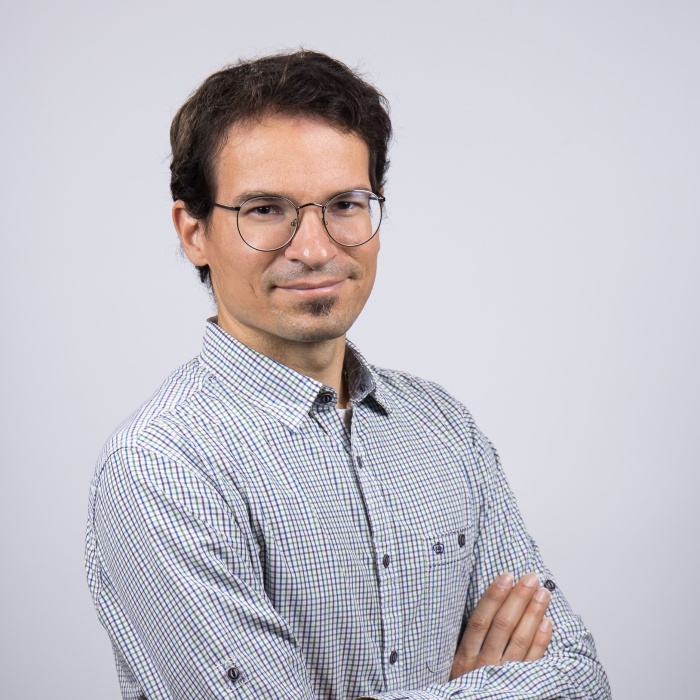
 The European Research Council (ERC) has announced the winners of this year’s Starting Grants. The council has selected 478 early-stage researchers from across Europe to receive funding, including András Gilyén, the 13th researcher to receive an ERC grant at the Rényi Institute. András Gilyén’s application is entitled “Genuine Quantum Algorithms Inspired by Thermodynamics and Natural Phenomena,” and the grant awarded is €1.47 million.
The European Research Council (ERC) has announced the winners of this year’s Starting Grants. The council has selected 478 early-stage researchers from across Europe to receive funding, including András Gilyén, the 13th researcher to receive an ERC grant at the Rényi Institute. András Gilyén’s application is entitled “Genuine Quantum Algorithms Inspired by Thermodynamics and Natural Phenomena,” and the grant awarded is €1.47 million.
The European Research Council helps early-career researchers launch their own projects, build research teams, and realise their most promising ideas. The total funding of €761 million supports excellent research in various fields, including the physical and engineering sciences, as well as the humanities and social sciences. We asked András Gilyén about the winning application:
Could you summarize what exactly your application is about?
- My application is about combining the processes related to open quantum systems in nature and the theory of quantum Markov chains. We learn from nature how it interacts with quantum systems and compare this with our knowledge of computational science and statistical physics, thereby starting to develop new algorithms, primarily for simulation tasks related to different quantum systems. We hope that this will lead to answering important theoretical questions that may be relevant in materials science or quantum chemistry. The goal is therefore to create new types of efficient quantum algorithms, test them on the first usable quantum computers, and together with this, to better and deeper understand the operation of such open quantum systems, and thus expand our knowledge of physics. If these three objectives of mine come together like this, it would be perfect in terms of the final result.
What exactly does the support of the European Science Council allow us to do?
- We will start implementing the application next year, and it will last for 5 years. I will have the opportunity to hire two postdocs with international experience, finance three PhD students, and periodically invite an expert visiting researcher from abroad or from a Hungarian university to join us. This is roughly how I plan to assemble the team.
How long have you been interested in this topic? How many years of work do you have behind you now?
- I was a postdoc at Caltech (California Institute of Technology) before, and in the spring of 2022, our first major post-COVID conference, Quantum Information Processing, was also there. My former mentor, Fernando Brandão, and his PhD student and I were talking about what was currently bothering us, and that's when it occurred to us to think together about the quantum version of the Metropolis algorithm - this is the topic I was talking about earlier - and that's when we actually started working on it. The PhD student, Anthony (Chi-Fang) Chen, was a very talented student; he had really good results in this direction, and I was interested in this topic from the perspective of quantum algorithms, so we started brainstorming right away. Later, we continued the work, which eventually led to a breakthrough – a joint paper on this will be published soon for the wider scientific community, which opened up a whole new area of research. I feel that now this is not only a topic that will give me enough research for 5 years, but that a whole small research community can take up this topic. In fact, this has already started; our first joint articles have been cited by hundreds of people in the past two years. The classical version of this issue is quite well known and very important theoretically, but the satisfactory quantum generalization was not yet known. Therefore, there was no solution to the related problems until now, but now that we have found the right quantum version, there are many important questions waiting to be answered, new challenges may arise, with new opportunities.
What you will be researching can be related to other mathematical fields as well?
- Of course, definitely. In the field of probability, stochastic processes, Markov chains, statistical physical models… These all move on the border of mathematics, physics, and computer science, and thanks to quantum computers, I am also interested in these, so there are a lot of related areas here.
What does this winning ERC grant mean to you at this moment? Is it a big responsibility, or are you more focused on the opportunities?
- It gives me a lot of security and confirmation. I knew that I wanted to deal with this topic, and it would be good to create a research group for this, but I didn’t have the funds for it until now. I started working with postdocs and working with students, which I was able to do; the Rényi Institute helped, and the ELTE Faculty of Informatics also supported my doctoral students, but this now gives me the opportunity to take it to the next level. I can put together an independent group with a secure financial background, we can work calmly with my team, and I can plan 5-6 years ahead.
